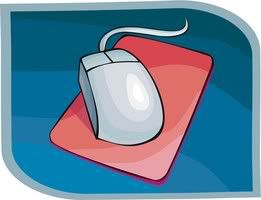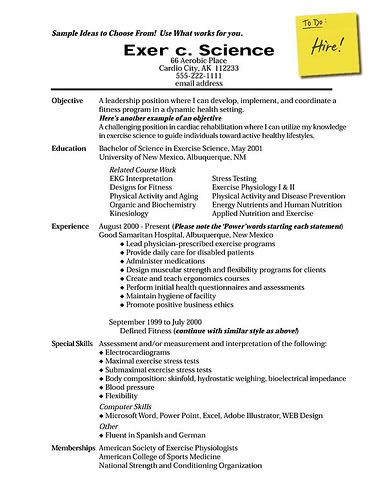With Christmas behind us, 2012 has come to an end to mark the beginning of a whole new chapter in our lives. Start your 2013 with a clear head and some inspiration in your heart. Akhtaboot presents you with 4 ways to prepare yourself for the next year.
Thứ Hai, 31 tháng 12, 2012
7 Ways to Get a Job Using LinkedIn
A more comprehensive job search strategy for LinkedIn
Reprinted with permission from seo-mind.com
Tweet
Most of the recruiters and employers have quit traditional methods of searching for a perfect candidate. No longer do they spend all their time going through job portals but they also search for interesting candidates on social media sites, blogs, forums and professional networking sites.
LinkedIn is one great way of letting recruiters know about your talents, testimonials, profession, friends, business networks and much more. LinkedIn has over 35 million members in over 200 countries and territories around the world. A new member joins LinkedIn approximately every second, and about half of LinkedIn members are outside the U.S. Executives from all Fortune 500 companies are LinkedIn members and have listed their entire profile including roles, responsibilities, previous experiences, education and their business network details.
1. Edit Opportunity Preferences: Edit your profile and change your contact settings > Opportunity Preferences. Select Job Inquiries and any other opportunities you prefer.
2. Get Recommendations: More recommendations in your profile means that your profile gets a higher the trust and reliability. Send a request for recommendation to your co-workers, clients or immediate managers. If you are in a management position, it is great to get a feedback on your leadership qualities. Make a practice also to recommend others whom you think deserve. This is another way to get a feedback from them.
3. Find where the Opportunity Is: Search for people in similar job profiles and find out where they work. Search on Google about those companies and find out if there are openings.
4. Find out the skill sets required: After you find out the companies where similar profession people work, it’s good to find out the skill sets they posses.
5. Find out how your colleague got that nice offer: Not many colleagues share all that they know or all that they do to get a job. Search with their names on LinkedIn and find out their background. Where they are employed now, what are their roles and responsibilities and more importantly what are their skill sets.
| 1 | 2 | Next Page
Thứ Sáu, 28 tháng 12, 2012
6 Signs Your Job Interview Went Well
Signs to look for during your job interview

Tweet
Right after a job interview, you're going to feel pretty relieved that it's all over and either confident that you did well or worried that you bombed. It's common for job seekers to go over the job interview questions that they went through and the answers they gave, and note any other small things during the interview - but how do you really know whether or not you did well? Check out these 6 points below and you'll have a better understanding of whether or not your job interview went well.
1. They give you a firm answer about when you’ll hear back.
This is not a foolproof indicator, but it’s a good one none the less. You don’t want to hear, “We’ll let you know.” You don’t want to have to ask, “When, exactly?” If they say, “I’ll have an answer for you on Monday morning,” that usually means they’ve made a decision. The decision might not be for you, but at least they’ve made a decision. This is sort of like a poker tell… if someone hasn’t made up their mind yet, they don’t really know how long it will take to do so, and thus are evasive about estimating how long it might take to make up their mind. If the interviewer gives you a vague answer, that might mean that there are plenty more interviews scheduled and your interview performance was not enough to make them cancel the others.
2. You covered topics beyond the job description.
A good interview is one where you handily answer all their questions, clearly demonstrate that you can meet all the job requirements, AND THEN start to discuss all the other things you can bring to the job. You win the job by using the interview to convince them that hiring you will bring them all sorts of additional dividends they didn’t even expect.
3. The interview went longer than scheduled.
This one is logical enough. If you’re in and out in a hurry, you might not have struck their fancy. But if you hang out for a while shooting the breeze (especially if you hit point number 4 below, that’s a good sign.
| 1 | 2 | Next Page
Thứ Năm, 27 tháng 12, 2012
8 Mistakes that Can Hurt Your Job Search
Big job hunt blunders that can cost your job search - big time

Tweet
Been searching for a job but aren't getting the results you want?
Take a look at the following top job search blunders to make sure you aren't undermining your own job search success!
Mistake # 1: Acting as if the Job Search Is about You
From your perspective, of course you want a job. Therefore, it's only natural to assume that the process of searching for a job is all about you. But when it comes to hiring, it's all about the company.
Organizations don't hire people because they want to give people jobs. They hire people because they have a specific need that must be met.
Unless you can demonstrate how your skills and strengths can help meet a specific need of an organization, you simply aren't relevant to that company; even if you're the most highly skilled person in the world. Discover the needs of the target company first, then position yourself as the best solution to those needs.
Mistake # 2: Not Knowing Yourself and Your Value
Starting a job search without first understanding your career interests, skills, values, and personality is like starting a road trip without a map. You can drive forward, but you probably won't end up where you want to be.
What gets you excited in life? What are you most proud of? What do you think you're best at?
Don't cut corners here. If you don't know the answers, talk to family and friends. If you're serious about your future, go a step further and get personal guidance from a career consultant who is trained to help people like you connect their unique gifts with a life direction.
Self-knowledge is the foundation for your entire job search campaign:
1. It will help you determine how to aim your job search at the right job targets.
2. It will help you communicate what value you can bring to a company.
3. It will enable you to give others the information they need to help you.
Mistake # 3: Not Being Able to Clearly Communicate How You Fit What the Company Needs
Refer to Mistake #1. Unless you can demonstrate how your skills and strengths can help meet a specific need of an organization, you simply aren't relevant to that company. This requires that you do your homework to discover what the company's needs are.
Learn as much as you can about the company's focus areas and needs, and then use the company's own language to describe what you can do for them.
| 1 | 2 | 3 | Next Page
Thứ Tư, 26 tháng 12, 2012
Top 5 Resume Sins
Huge resume writing blunders that can cost you
Reprinted with permission from careerealism.com.
Tweet
Your resume is a company’s first look at what skills and accomplishments you might bring to the job. Don’t make it their last look! Be sure to avoid these major resume mistakes:
1. You failed to tailor your resume to the specific job you want.
So even though you have the skills that the company asked for in their advertisement or posting, you left the details out of your resume. Those specific skills must be in your resume and should be prominent, preferably at the top of your resume.
2. Your contact information is incomplete and does not include a professional e-mail address.
A professional e-mail address consists of your first and last name. Cute e-mail addresses are not professional. If you have a common name, try putting your last name first or adding numbers after your name. Avoid the numbers 1 and 0. In some fonts, they look like letters and can confuse people reading your resume. Does your johndoe1 address refer to John Doe One or John Doel?
3. You lied about or apologized for or over-explained your qualifications.
If you lack confidence in your abilities, how can an employer have confidence that you are the right person to hire? A resume should describe you honestly but also show you at your best.
| 1 | 2 | Next Page
Thứ Hai, 24 tháng 12, 2012
PYM: Holiday Edition
 |
| Looking for your perfect holiday? |
On giving and receiving gifts:
-It is not the thought that counts. There is a mismatch in our preference for giving and our preference for receiving gifts. We like to think that a thoughtful gift is the best kind, but gift recipients really just want to receive a gift they like - so know that picking a gift from someone's amazon wish-list is a surefire way to guarantee a happy Christmas. But if you went off-road this Christmas when buying your presents, temper your expectations for how happy the recipient will be when receiving a gift accompanied by out-of-the-box thinking. And if you are receiving a gift that isn't what you expected, remember that the gift giver thought they were doing something nice by putting in that extra thought and not just clicking on the amazon link.
Read More->
Akhtaboot to Power the Recruitment of CrysTelCall
Akhtaboot - the career network is proud to announce the launch of CrysTelCall’s Career Connect solution, “Powered by Akhtaboot”, which will provide CrysTelCall with their own fully integrated and branded jobs section with the ability to post unlimited job postings and receive job applications directly onto their careers section on their own website.
As part of Akhtaboot’s relentless efforts in providing world-class recruitment services to its clients, CrysTelCall will be able to make the most of their Career Connect solution with a single point of contact for all of their recruitment needs with a variety of CV filtration, and organization tools, making the hiring process simple, efficient and as cost-effective as ever.
Ms. Farah Bitar, HR Associate at CrysTelCall, said:
“I am very satisfied with the relationship we have formed with Akhtaboot as a recruitment solutions provider. Akhtaboot’s Career Connect Solution will be of great value to our recruitment process as it provides us with great features to simplify and streamline the recruitment process at CrysTelCall. We are definitely looking forward to a successful extension of our collaboration.”
With Career Connect, Akhtaboot goes beyond helping companies simply find the right candidates; it actually provides companies with a one-stop recruitment gateway that is specifically designed to cater to the employment needs of companies.
How Volunteering Can Boost Your Career
Volunteering jobs more appealing nowadays
By Tai for DivineCaroline.com
Tweet
Income … $0. Value … Priceless.
It’s always a good thing to give back. Whether it is doing hands on service with a group like Habitat for Humanity, or assisting in the back office of a local non-profit, there are benefits beyond money that come from volunteering. Apart from just the positive feeling of sowing good actions into a cause you believe in and the impact on the lives of the recipients, volunteering can also help your career. Here are six ways volunteering can help your career:
1. It can fuel your passion. If your current job is not your ideal work, volunteering at something you enjoy is an alternative source of the passion that your you can’t get from your job right now.
2. You can practice new skills. No opportunity in your current job to stretch or learn something new? Find a volunteer opportunity that allows you to explore new roles and skills that you’d like to develop. It’s experience you can add to your resume.
3. Volunteer your way into a potential job. Maybe you don’t have the experience to earn the paid position yet. Signing on as a volunteer gives you a chance to learn the organization, build relationships there, and show that you have what it takes to do job.
4. Volunteering is an opportunity to expand your network. Not only will you meet people who support the same cause, you will find people that have personal and professional connections that can help you—especially if you are looking for a job.
5. Exposure to new ways of doing things. Seeing how another organization runs things, and being exposed to different ways of managing, brainstorming, solving problems, can provide a fresh way to look at the challenges you face in your paid position.
6. You can use it as a team building experience. This one goes beyond just you. Do you lead or work with a team? Finding a group volunteering opportunity can be a low-cost way to do good and re-establish positive connections with your team.
Looking for volunteer opportunities? Here’s a few links to jump-start your search:
Idealist.org
1-800 Volunteer .org
Network for Good
Volunteer Match
Volunteer.gov (powered by Network for Good has additional volunteering info on main site)
Global Volunteer Network: Volunteer Abroad
BoardNet: Serve on a non-profit board
Originally published on DivineCaroline.com
Chủ Nhật, 23 tháng 12, 2012
Body Language Mistakes that Can Kill your Career
It’s not just what you say that matters!
Your ability to use your body language in a way that emphasizes your words is vital to your success. From getting a promotion to closing a deal, your non-verbal communication can make a big difference to whether you succeed or you don’t. There are sometimes indirect gestures, facial expressions and even shifts in your entire body that can give the wrong impression about you. The way you speak, walk, sit and stand says a lot about you. By becoming more aware of your body language, you will put yourself in a better position in business and life. That said, many of us sometimes send mixed messages that might reveal something different than what we actually meant to say. This can affect how others react to us. Akhtaboot is here with the top body language mistakes that can ruin your career!
Bad Body Posture
Growing up, our parents constantly asked us to sit up straight, and for good reason. Slouching is associated with insecurity and lack of strength while leaning forward can give the impression that you’re aggressive. The ideal way to go about body posture is to maintain a neutral position; sitting tall with your head up high. Studies have also shown that even when we don’t feel confident, testosterone and cortisol levels in the brain are affected, which means that we can change other people’s perceptions and even our own body chemistry simply by changing body positions.
Breaking Eye Contact
It’s no secret that eye contact is an important aspect of communication. It makes you come across as interested, friendly, and confident. Many professionals tend to feel uncomfortable holding eye contact once a personal connection has been established. While it may feel a bit awkward to consciously plan when you'll make eye contact with people and when you won't, in practice it may be easier. Just try to make as much eye contact as possible, not get down on yourself over the times you can't, and slowly try to get more used to it.
Pointing Fingers
Body language experts generally agree that hands send more signals than any other part of the body except for the face. Using your index finger to point at someone, something is one of the worst body language signs that you can make. Pointing your fingers at the other person can cut up the personal space between you in an aggressive way and it is strongly associated with anger, directed at another person.
Nodding your Head Excessively
Excessive head nodding implies that you feel that the speaker has made his point or taken sufficient time. Fast head nodding is rather like the hand gesture given off-camera by the director to a performer, indicating that “Time is up”. Nod once or twice with a smile of agreement, then try to find your comfort zone and stay there.
Fidgeting
Fidgeting is the act of playing relentlessly with your fingers, hair, or items of clothing such as rings in an unconscious way. This may be a result of nervousness, agitation, boredom or a combination of these. Recent studies have revealed that those who fidget burn more calories, have better circulation and less back and joint pain. They also think and remember more effectively when fidgeting. Since most people see fidgeting as a sign that you are not concentrating, try to come up with creative ways to do it discreetly.
Your ability to use your body language in a way that emphasizes your words is vital to your success. From getting a promotion to closing a deal, your non-verbal communication can make a big difference to whether you succeed or you don’t. There are sometimes indirect gestures, facial expressions and even shifts in your entire body that can give the wrong impression about you. The way you speak, walk, sit and stand says a lot about you. By becoming more aware of your body language, you will put yourself in a better position in business and life. That said, many of us sometimes send mixed messages that might reveal something different than what we actually meant to say. This can affect how others react to us. Akhtaboot is here with the top body language mistakes that can ruin your career!
Bad Body Posture
Growing up, our parents constantly asked us to sit up straight, and for good reason. Slouching is associated with insecurity and lack of strength while leaning forward can give the impression that you’re aggressive. The ideal way to go about body posture is to maintain a neutral position; sitting tall with your head up high. Studies have also shown that even when we don’t feel confident, testosterone and cortisol levels in the brain are affected, which means that we can change other people’s perceptions and even our own body chemistry simply by changing body positions.
Breaking Eye Contact
It’s no secret that eye contact is an important aspect of communication. It makes you come across as interested, friendly, and confident. Many professionals tend to feel uncomfortable holding eye contact once a personal connection has been established. While it may feel a bit awkward to consciously plan when you'll make eye contact with people and when you won't, in practice it may be easier. Just try to make as much eye contact as possible, not get down on yourself over the times you can't, and slowly try to get more used to it.
Pointing Fingers
Body language experts generally agree that hands send more signals than any other part of the body except for the face. Using your index finger to point at someone, something is one of the worst body language signs that you can make. Pointing your fingers at the other person can cut up the personal space between you in an aggressive way and it is strongly associated with anger, directed at another person.
Nodding your Head Excessively
Excessive head nodding implies that you feel that the speaker has made his point or taken sufficient time. Fast head nodding is rather like the hand gesture given off-camera by the director to a performer, indicating that “Time is up”. Nod once or twice with a smile of agreement, then try to find your comfort zone and stay there.
Fidgeting
Fidgeting is the act of playing relentlessly with your fingers, hair, or items of clothing such as rings in an unconscious way. This may be a result of nervousness, agitation, boredom or a combination of these. Recent studies have revealed that those who fidget burn more calories, have better circulation and less back and joint pain. They also think and remember more effectively when fidgeting. Since most people see fidgeting as a sign that you are not concentrating, try to come up with creative ways to do it discreetly.
Thứ Sáu, 21 tháng 12, 2012
5 Reasons Your Job Hunting Isn't Going Well
Analyzing your job hunt could prove to be more useful than you think

Tweet
To advance your career and make sure your job hunt is on track there are a number of things that you must make sure you are doing right. In fact as a job seeker, looking to get a job should in fact be your full-time job. Today we are going to look at 5 quick, key reasons you are not getting the response from employers that you feel you should. If you are guilty of any of these offenses, today is a great day to take action.
# 1. You are not making your job hunt personal.
What we mean here is that you are still sending generic resumes to "whom it may concern." Get personal. Find the names of the HR Directors, hiring managers or the person doing the hiring at the company. Then send them a personal note with a custom resume catered to their company and position that you wish to have.
# 2. You are looking where everyone else is looking.
As a job board, we want you to look at apply to the jobs that we offer on our site. It's a great way to see a mass number of open positions at one time. However, do know that you are competing with a larger number of candidates. Do your homework and find open positions through networking, online searching and leveraging job boards and vertical search engines like Job-A-Lot to uncover hidden gems.
# 3. You believe every word coming out of the television.
If you think everything is all doom and gloom, its time to snap out of it. Orlando is a top 5 city for available internships and entry level positions - so you are in a great place to find opportunity. Take a few minutes out of your day to find positivity and you will find yourself having less stress and an open mind towards your job hunt.
| 1 | 2 | Next Page
Thứ Năm, 20 tháng 12, 2012
Friday Fun: My Favorites of 2012!
Hello again PYM readers! The end of 2012 marks the end of our second year as a psychology research blog (the first full year). I feel like a proud papa (Also, I will be an actual papa in March). With the close of our second year here at PYM, I'd like to highlight some of my favorite blog entries from the past 12 months.
Read More->
Applying to Jobs Online? 3 Mistakes to Avoid!
Online job hunting pitfalls everyone should know

Tweet
Job hunting online seems to be simple these days, just a few clicks and you have submitted your application - but what if we are doing something wrong when applying to jobs online? Using the Internet for a long time now, I can safely say that while trying to get a job online is pretty straight-forward at times, there are some huge mistakes job seekers can make. To see what 3 big mistakes to avoid while job hunting online, read this article.
1) Applying to positions we are not qualified for.
The Web has streamlined how we communicate with each other. We often see postings on the Web we "may" be interested in and quickly apply to them without giving it more thought. That is the path to failure as the whole process is built on wishful thinking. Most people who have this habit will then have a tendency to send a short email, along with a generic resume (or no resume at all!). Recruiters can easily identify these types of applicants and will not waste their time reviewing these applications. For these applicants the issue really is: If you are not interested in the position, why bother applying and, if you are indeed interested in the position, why don't you put more effort into it?
2) Lack of professionalism when applying online.
It is certainly true that the Web has broken a lot of frontiers, including that between people. We are much more informal on the Web. Some people push this attitude too far however to the point of using the wrong "tone" when applying for a job. Keep in mind that a certain degree of formalism should remain. It's preferable to lean on the safe side. You probably have heard that when attending a job interview, better dress conservatively (except if you are an artist, or
working in the creative field) than push your luck. At the end of the day, you will be hired for your competence. You don't want your outfit to be a distraction. Same thing for your job application. You don't want anything to distract the employer when reviewing your job application. Being too informal could have a nagging effect on some recruiters and might jeopardize your candidacy.
| 1 | 2 | Next Page
The 5 College Degrees Employers Want In 2012
The job market for new grads, analyzed
Story by AGBeat.com.
Tweet
Nationally, employers are looking for critical thinkers as they increasingly hire recent college graduates. Take a look at the top degrees in demand right now and get a feel for what your competitors are looking for.
Hiring trends for 2012
According to a new survey from the National Association of Colleges and Employers (NACE), business, engineering and computer science degrees are in the highest demand for employers looking to hire college graduates in 2012.
NACE reported in February a 10 percent increase in companies’ intent to hire interns this summer (mostly paid) and that employers plan to hire 9.5 percent more college graduates in 2012 than they did in 2011. Most companies plan to recruit mostly later this yer, likely during the fall semester. Additionally, the non-profit reports that starting salaries for graduates is up 3.5 percent this year.
Top five degrees this year
According to the report, below are the top five most in demand college degrees this year:
1. Business Administration
According to the Job Outlook survey, employers prefer candidates who have problem solving and leadership skills, which could potentially be acquired or honed through a business program.
Whether you want to work for a big or small business, studying business administration is a good way to prepare yourself.
2. Engineering
According to the U.S. Department of Labor, the future looks bright for engineering graduates, with engineering jobs as a whole expected to climb 11 percent through 2018.
Sought after skills such as problem solving and analysis also contributes to wide range or careers.
3. Computer and Information Sciences
Computers have revolutionized the business world. Graduates tech-savvy skills are appealing to many employers, according to the Job Outlook survey.
As technology keeps advancing, employers look for workers with the latest and greatest computer skills.
| 1 | 2 | Next Page
Thứ Tư, 19 tháng 12, 2012
Is Your Resume Missing These 5 “Must Haves”?
Your resume could be missing out big time

Tweet
Making sure your resume is a powerful marketing document is a wise investment in your career. It can set you apart from your competition, maximize the amount of interviews you land and ultimately play into how much a company offers you.
After all, you are negotiating with potential employers from the moment you connect with them to the time the offer is made. So everything that happens in that window of time plays into your offer…including how well targeted, well designed and compelling your resume is.
Here are five elements you will want to make sure your resume has:
Number one: Targeted Format
Your resume must be compelling for the type of position you are focusing on. If you are a sales executive of course you are going to want to quantify your sales skills in terms of territory development, revenue generation, and types of skills associated with sales and secondary support skills such as client management customer service, public relations and marketing.
Number two: Value Proposition Statement
Under the heading of your resume you should have a value proposition statement. An example of a value proposition statement is a 3 to 4 sentence overview of your focus and your strengths. Here’s an example of a VP Statement for a technology executive's resume:
Innovative and highly competent business and technology leader with 15+ years experience developing creative technology solutions that enhance performance, effect change, drive profits and growth. Proven reputation to:
Note: A value proposition statement is different from a personal objective statement. A personal objective statement is not the best to start out with on a resume simply because it’s a statement about what YOU want. Rather, share with your potential employer what skills and strengths you have to offer THEM.
| 1 | 2 | Next Page
Thứ Ba, 18 tháng 12, 2012
Holiday Job Search Tips
The holiday season is upon us! Many job seekers think that this is the time where they stop searching for jobs. On the contrary, this time of year may be ideal for meeting potential employers and getting a job interview. Akhtaboot presents 4 job searching tips during the holiday season:
Thứ Hai, 17 tháng 12, 2012
Job Interview Question: "Do You Have Any Questions?"
Easy job interview question? Think again
Reprinted with permission from jobbound.com.

Tweet
“Do you have any questions?” Finally, the interviewer has stopped spouting off questions, and he is curious to see what questions you may have. During the interview, the company is trying to get to know you, but you also are interviewing the company to see if it would be a good fit. Your questions are a great way to explore and see if it’s a nice match.
1. Have a couple questions – good questions. It doesn’t matter how many interviews you have at the same company or even with same person, you always want to have two or three (not fifteen) questions at the end of every interview. You should ask questions that will help you discover if this is the place where you want to be at least eight hours every day. Questions often fall into three camps: business-related, job-related, or personal. You should brainstorm a few before the interview. Here’s some samples to get your ideas flowing:
Business-Related Questions
How has you business been influenced by the shaky economy?
How does someone advance in this company?
Where do you see the company in ten years?
Has the recent merger had an impact on customer service?
Job-related questions
How would you describe the corporate culture?
What is the management style in this department?
What are some of the skills and abilities necessary for someone to succeed in this job?
What makes someone successful at this company?
How do you measure and determine success for this position?
Personal questions
Why did you decide to join this company?
What do you like most about working here?
What is the most challenging thing about working here?
If you could change one thing about the company, what would it be?
What do you consider your company’s strengths and weaknesses?
You should always have a few “soft” questions in your back pocket, if you find your inquisitive nature going dry at the end of an interview. It’s nice to have personal questions that you can ask anyone in any department or at any level, and it’s OK to ask different interviewers the same personal questions.
You never want to ask obvious questions that you can find out from the job description or the web site such as “Who are your clients?” or “Where are your offices located?”
Also, don’t ask the salary question during the interview. You wait to ask those questions once you have received the job offer.
2. Pay attention to the answer and ask a follow up question. A great question and answer session and conversation at the end of your interview can leave a lasting impression.
| 1 | 2 | Next Page
Thứ Sáu, 14 tháng 12, 2012
5 Types of interviewers and how to prepare for them
Which job interviewer are you facing?

Tweet
Not everyone interviews with the same format, passion, process and questions. There are some old standards out there that some interviewers follow, while others take their own path, especially the entrepreneurs. There are different types of interviewers and with some forethought you can be prepared to interview successfully, no matter which type you encounter.
Keep in mind that an interviewer’s personality and their style make a difference in the outcome. For example, a hotel front desk clerk learns quickly to read a person’s personality as they approach the desk. This is key to customer service because the clerk quickly adapts in order to meet the needs of that customer. A food server listens carefully to a table of guests to assess the mood and friendliness of each person or the group and know how to provide them with excellent service.
Take caution though: if you misread the personality of the interviewer, you might make some mistakes that could cause you to not move further in the hiring process. Here we share the most common types of interviewers to help you make your own “first impression” style assessment, which can arm you with what you need to position yourself in the interview. These are just some simple rules to follow allowing you to be more comfortable at the onset of the interview.
1. The Non-Stop Talker
You’ve seen the type – they talk more than they ask questions. This sometimes presents a vulnerable situation whereby the interviewer chats personally and sucks you into feeling comfortable enough to move with the conversation. This might lead you to state some information that you might not want to reveal at this time. Be polite and respond with friendliness as the interviewer will appreciate this quality. So carefully listen to the questions and respond in a professional manner. Wait for those opportunities to ask pertinent questions relative to the position or the company. It shows your interest in what the interviewer has to say and allows them to continue with their chatter.
2. The Drill Sergeant
Opposite of the chatter is the interviewer who maintains domination over the conversation by firing off a list of questions in a monotone voice. This might be a bit intimidating but their goal might be to do just that – make you nervous. Maintain your eye contact with strong earnest, remain calm and confident, look for ways to return some questions, and provide solid answers without adding chatter. Stick to the pertinent information and be ready for the continued drill.
| 1 | 2 | Next Page
Thứ Năm, 13 tháng 12, 2012
15 Interesting Facts About the Stock Market
Ticker Tape Trivia
By Molly Mann Jones for DivineCaroline.com

Tweet
I was an English major in college and didn’t go near a math class if I could help it, so my knowledge of stocks and trading is limited. But my interest in the history of Wall Street is keen, so I’ve collected many tidbits of information about the U.S. stock market over the years. For example, did you know the origin of the term “bull market,” or when ticker tape came into use? Here, fifteen fun facts about our nation’s financial trading center, from StockMarketTrivia.com.
Let’s Get Our Terms Straight
1. A stock is a share of ownership in a company that can be bought, sold, or traded. A bond is a loan to a company that can be bought, sold, or traded.
2. The origins of the phrases bull market and bear market are obscure. A bull market is characterized by investor confidence, and the Oxford English Dictionary (OED) cites an 1891 usage as the earliest for the term. It may come from the French bulle spéculative, meaning a speculative market bubble. The OED points to London bearskin “jobbers” (market makers), who would sell bearskins before the bears had actually been caught. The bear became associated with short selling; jobbers would sell bearskins they did not own in anticipation of falling prices, which would enable them to buy them later for an additional profit. That would explain why the term bear market refers to declining investor confidence and deteriorating financial conditions.
3. The Dow Jones Industrial Average is one of several stock market indices created by Wall Street Journal editor and Dow Jones & Company cofounder Charles Dow. The average is named after Dow and one of his business associates, Edward Jones; it’s an index that shows how thirty large, publicly owned companies based in the United States have traded during a standard session. It is the second-oldest U.S. market index after the Dow Jones Transportation Average, which Dow also created. Along with the NASDAQ Composite, the S&P 500 Index, and the Russell 2000 Index, the Dow is one of the most closely watched benchmark indices. Although Dow compiled the index to gauge the performance of the industrial sector within the American economy, the index’s performance continues to be influenced not only by corporate and economic factors, but also by domestic and foreign political events and natural disasters that could affect economic scenarios.
History of the NYSE
4. Stock trading may have begun as early as 9000–8000 BC, at which time clay tokens were used for accounting. Unfortunately, writing hadn’t been invented at that time, so there is no way to confirm this possibility.
5. Later, around 4000–3000 BC, an item called a bulla (plural: bullae or bullas) came into use. This was like a clay purse that contained accounting tokens and was completely sealed. The bullae often had seals imprinted on them, and eventually had notations written on them designating how many tokens were inside and what they represented: for example, a certain number of sheep. These inscriptions on the outside of the bullae led to what is called cuneiform, the earliest form of writing, and may have been another source of the phrase bull market.
| 1 | 2 | Next Page



